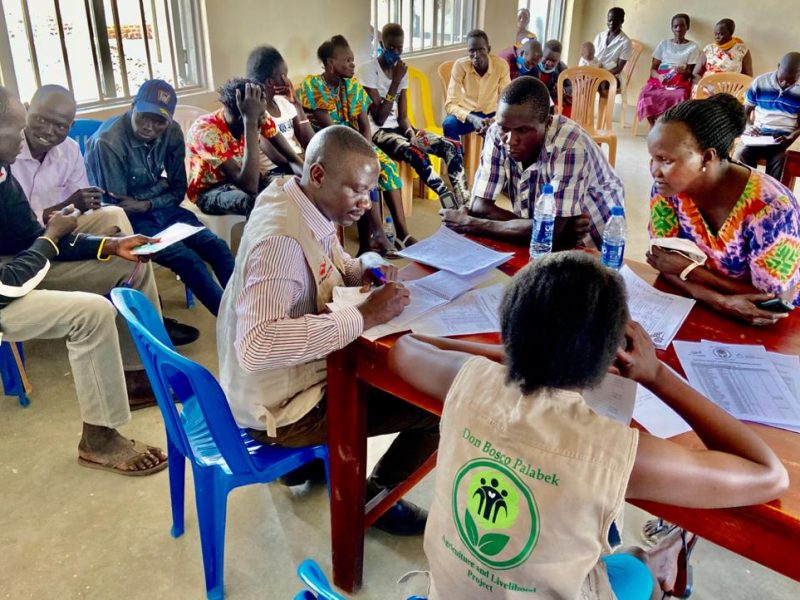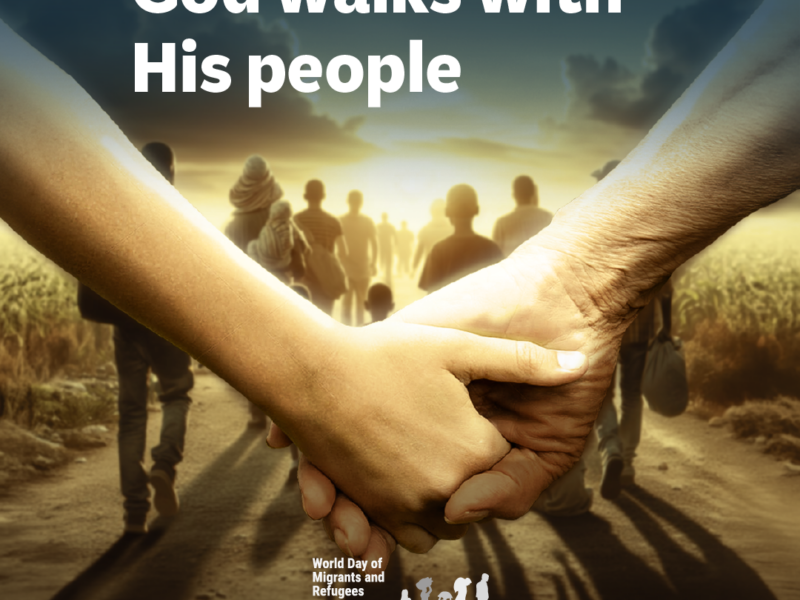[…] Sadly, comparable acts of brutality, which not infrequently reap victims from among the poor and the most vulnerable, are found in other parts of the world as well. I think in particular of Nigeria where acts of violence continue to strike indiscriminately and there is a constant increase in the tragic phenomenon of kidnappings, often of young girls carried off to be made objects of trafficking. This is an abominable trade which must not continue! It is a scourge which needs to be eradicated, since it strikes all of us, from individual families to the entire international community (cf. Address to Newly Accredited Ambassadors to the Holy See, 12 December 2013). […]
[…] Together with lives thrown away because of war and disease, there are those of numerous refugees and displaced persons. Once again, the reality can be appreciated by reflecting on the childhood of Jesus, which sheds light on another form of the throwaway culture which harms relationships and causes the breakdown of society. Indeed, because of Herod’s brutality, the Holy Family was forced to flee to Egypt, and was only able to return several years later (cf. Mt 2:13-15). One consequence of the situations of conflict just described is the flight of thousands of persons from their homeland. At times they leave not so much in search of a better future, but any future at all, since remaining at home can mean certain death. How many persons lose their lives during these cruel journeys, the victims of unscrupulous and greedy thugs? I raised this issue during my recent visit to the European Parliament, where I insisted that “we cannot allow the Mediterranean to become a vast cemetery” (Address to the European Parliament, Strasbourg, 25 November 2014). Then too there is the alarming fact that many immigrants, especially in the Americas, are unaccompanied children, all the more at risk and in need of greater care, attention and protection.
Often coming without documents to strange lands whose language they do not speak, migrants find it difficult to be accepted and to find work. In addition to the uncertainties of their flight, they have to face the drama of rejection. A change of attitude is needed on our part, moving from indifference and fear to genuine acceptance of others. This of course calls for “enacting adequate legislation to protect the rights of… citizens and to ensure the acceptance of immigrants” (ibid.). I thank all those who, even at the cost of their lives, are working to assist refugees and immigrants, and I urge states and international organizations to make every effort to resolve these grave humanitarian problems and to provide the immigrants’ countries of origin with forms of aid which can help promote their social and political development and settle their internal conflicts, which are the chief cause of this phenomenon. “We need to take action against the causes and not only the effects” (ibid.). This will also enable immigrants to return at some point to their own country and to contribute to its growth and development.
Together with immigrants, displaced people and refugees, there are many other “hidden exiles” (Angelus, 29 December 2013) living in our homes and in our families. I think especially of the elderly, the handicapped and young people. The elderly encounter rejection when they are considered a “burdensome presence” (ibid.), while the young are thrown away when they are denied concrete prospects of employment to build their future. Indeed, there is no poverty worse than that which takes away work and the dignity of work (cf. Address to Participants in the World Meeting of Popular Movements, 28 October 2014), or which turns work into a form of enslavement. This is what I sought to stress during my recent meeting with popular movements working to finding adequate solutions to some of today’s problems, including the scourge of rising unemployment among the young, illegal labour, and the dramatic situation of so many workers, especially children, who are exploited out of greed. All this is contrary to human dignity and the fruit of a mentality which is centred on money, benefits and economic profit, to the detriment of our fellow man. […]
[…] I experienced an eloquent sign that the culture of encounter is possible during my visit to Albania, a nation full of young people who represent hope for the future. Despite the painful events of its recent history, the country is marked by the “peaceful coexistence and collaboration that exists among followers of different religions” (Address to Authorities, Tirana, 21 September 2014), in an atmosphere of respect and mutual trust between Catholics, Orthodox and Muslims. This is an important sign that sincere faith in God makes one open to others, generates dialogue and works for the good, whereas violence is always the product of a falsification of religion, its use as a pretext for ideological schemes whose only goal is power over others. Similarly, in my recent journey to Turkey, a historic bridge between East and West, I was able to see the fruits of ecumenical and interreligious dialogue, as well as efforts made to assist refugees from other countries of the Middle East. I also encountered this spirit of openness in Jordan, which I visited at the beginning of my pilgrimage to the Holy Land, and in the testimonies which come from Lebanon, a country which I pray will overcome its current political problems. […]




